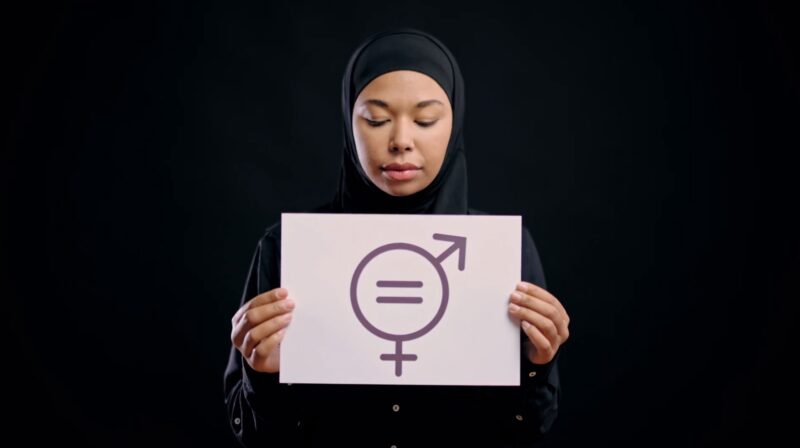Gender roles have long been ingrained in societies worldwide, shaping our expectations of how men and women should behave. These societal expectations and norms surrounding have profound implications for mental health, particularly when it comes to depression.
In this article, we will delve into the complex relationship between gender roles and depression, shedding light on the ways in which traditional gender roles contribute to the development of depression in both men and women. By understanding these dynamics, we can work towards dismantling harmful gender norms and fostering mental well-being for all individuals.
The Influence of Traditional Gender Roles
Societal expectations and norms regarding gender roles exert a significant influence on mental health outcomes, including depression. From an early age, boys and girls are socialized differently, conditioned to adhere to specific gendered behaviors and roles. Boys are often encouraged to be strong, independent, and emotionally stoic, while girls are expected to be nurturing, empathetic, and compliant. These rigid gender expectations limit individuals’ freedom of expression and can lead to the development of depression.
Men, influenced by traditional gender roles, often face societal pressures to be self-reliant and resilient in the face of adversity. The expectation that men should embody traits associated with dominance and emotional restraint can result in the internalization of emotional distress.
Men may feel compelled to hide their vulnerabilities and suppress their emotions, fearing that expressing their feelings would be seen as a sign of weakness. Consequently, this emotional suppression can lead to an increased vulnerability to depression.
Unaddressed Mental Health in Men
One of the significant challenges in addressing depression among men is the prevailing stigma surrounding mental health. Traditional gender roles dictate that men should be strong, unshakable pillars of support for others, which can discourage them from seeking help for their mental health struggles.
Men may fear being judged or emasculated if they admit to experiencing depression or other mental health issues. This societal pressure to “man up” and endure silently perpetuates the cycle of depression, as men are less likely to receive the support and treatment they need.
Creating an environment that promotes open dialogue and destigmatizes mental health issues is crucial for breaking down these barriers. Men need to be encouraged to seek help without fear of judgment or loss of masculinity. By challenging the notion that seeking help is a sign of weakness and fostering a supportive society, we can pave the way for improved mental health outcomes for men.
Empowering Men to Seek Help
Breaking the cycle of unaddressed mental health in men requires concerted efforts to promote help-seeking behaviors and destigmatize seeking support. Public health campaigns targeting men can challenge the notion that seeking help is a sign of weakness and emphasize that reaching out for support is an act of strength and self-care.
Creating male-friendly spaces where men feel comfortable discussing their emotions and experiences is essential. Men’s support groups, online forums, or workplace initiatives can provide a supportive environment for sharing and receiving guidance. Men-specific mental health services staffed by professionals who understand the unique challenges faced by men can also make a significant difference.
The Superwoman Syndrome
While traditional gender roles impose pressures on both men and women, women often face additional challenges due to the expectations placed upon them. The “Superwoman Syndrome” refers to the societal pressure for women to excel in multiple roles simultaneously, including being a caregiver, breadwinner, partner, and community member. Balancing these roles can be overwhelming and lead to increased stress levels, eventually contributing to the development of depression.
The demands of the Superwoman Syndrome can be mentally and emotionally exhausting for women. The constant juggling act between work, family, and personal life can result in feelings of inadequacy, guilt, and burnout.
Moreover, societal judgments and expectations regarding women’s appearance, achievements, and behavior further compound the stress, leading to an increased risk of depression. It is crucial to recognize the challenges women face and create supportive environments that allow for a healthy work-life balance and redefine success beyond traditional gender roles.
Masculinity and Emotional Expression
Rigid masculinity norms play a significant role in the higher rates of depression among men. Society often expects men to exhibit traits associated with dominance, independence, and emotional strength.
As a result, many men learn to suppress their emotions, fearing that expressing vulnerability or seeking support will be seen as a sign of weakness or emasculation. The pressure to conform to these norms and the inability to express emotions freely can take a toll on men’s mental well-being.
The inability to effectively communicate emotions can lead to a sense of isolation and loneliness, as men struggle to form meaningful connections and seek support from others. Without healthy emotional outlets, feelings of feelings of brokenness, despair, frustration, and sadness can intensify, ultimately contributing to higher rates of depression.
Recognizing and challenging rigid masculinity norms is essential for creating a society that values emotional expression and supports men in their journey toward improved mental health.
Gender Role Expectations and Identity Conflict
For individuals who do not conform to traditional gender roles, the experience of depression can be compounded by identity conflict and social stigma. Non-conforming individuals may face challenges in reconciling their self-identity with societal expectations. This conflict can create a profound sense of isolation, as they may feel misunderstood or rejected by their communities.
Social stigma directed towards individuals who challenge traditional gender roles can exacerbate the risk of depression. The fear of judgment, discrimination, or violence can lead to chronic stress and psychological distress. It is vital to foster a society that embraces diversity and provides a safe space for individuals to explore and express their authentic selves, reducing the risk of depression and promoting mental well-being.
Stigmatization and Mental Health
The stigma surrounding mental health issues, when combined with traditional gender roles, poses significant challenges for individuals seeking support. Society often expects men and women to conform to narrow definitions of gendered behavior, leaving little room for vulnerability and emotional struggles.
As a result, individuals who deviate from these norms may face stigma and discrimination, making it difficult for them to reach out for help.
Stigma adds an extra layer of burden to individuals already grappling with depression. It creates a barrier to seeking professional assistance, receiving social support, and accessing appropriate treatment.
To combat the stigma, we must actively challenge stereotypes, educate society about mental health, and create safe spaces where individuals can share their experiences without fear of judgment. Only by dismantling these barriers can we ensure that everyone has equal opportunities for recovery and well-being.
Economic Disparities and Mental Health
They also intersect with economic disparities, contributing to the development of depression. In many societies, women face significant financial inequalities and disparities in the workplace. Unequal pay, limited career opportunities, and the burden of unpaid care work can lead to chronic stress, financial insecurity, and a lack of autonomy. These factors increase the risk of depression among women.
Men, on the other hand, may experience pressure to be the primary breadwinners, placing a heavy burden on their shoulders. Economic instability, job loss, or a sense of failure in meeting societal expectations can contribute to feelings of hopelessness and despair, increasing the risk of depression. Recognizing and addressing these economic disparities is essential for promoting mental well-being and ensuring equal opportunities for individuals of all genders.
Intersectionality and Gender Role Stress
Roles do not exist in isolation; they intersect with other social identities such as race, ethnicity, and sexual orientation. Intersectionality plays a crucial role in shaping mental health outcomes and experiences of depression. Individuals who belong to marginalized communities may face compounded gender role stress due to the intersecting layers of discrimination and societal expectations.
For example, transgender individuals may face challenges in reconciling their gender identity with societal norms, leading to increased stress and vulnerability to depression. Similarly, individuals from racial or ethnic minority backgrounds may experience unique pressures and stereotypes that affect their mental well-being.
Understanding the complex intersections of gender roles with other identities is essential for developing inclusive mental health policies and interventions that address the diverse needs of all individuals.
Challenging Gender Norms
In order to foster improved mental health outcomes for all individuals, it is crucial to challenge traditional gender norms and promote inclusivity. There are various strategies and initiatives that can be implemented to break free from the constraints of rigid gender roles and create a more supportive and understanding society.
Firstly, comprehensive sex education that goes beyond biological aspects and incorporates discussions on gender, identity, and mental health can help young people develop healthier attitudes towards themselves and others. By challenging gender stereotypes from an early age, we can promote more inclusive and accepting environments.
Secondly, media representation plays a significant role in shaping societal attitudes. By promoting diverse and realistic portrayals of gender and mental health, media can contribute to breaking down stereotypes and reducing stigma.
The Role of Education and Awareness
Education and awareness are fundamental in addressing the impact of gender roles on depression. By incorporating mental health education into school curricula, we can equip young people with the knowledge and skills to recognize and manage their mental well-being. Teaching students about healthy coping mechanisms, emotional intelligence, and strategies to challenge gender norms can empower them to navigate the pressures of societal expectations.
Additionally, providing training and resources for educators, healthcare professionals, and community leaders can enhance their understanding of the complex relationship between gender roles and depression. This knowledge equips them to identify signs of distress and provide appropriate support to individuals who may be struggling.
Redefining Success and Self-Worth
The societal definition of success often revolves around achievement, financial status, and societal expectations tied to gender roles. Redefining success beyond these narrow parameters can alleviate the pressure and stress that contribute to depression. Promoting the idea that success can be multifaceted, encompassing emotional well-being, meaningful relationships, and personal growth, helps individuals break free from the shackles of gendered expectations.
Encouraging self-compassion and self-care is vital in fostering improved mental health outcomes. Emphasizing the importance of setting boundaries, practicing self-care activities, and nurturing healthy relationships can counteract the detrimental effects of gender roles and promote emotional well-being.
Final Words
In conclusion, the relationship between gender roles and depression is complex and multifaceted. Societal expectations and norms surrounding gender roles have a profound impact on mental health outcomes, affecting individuals of all genders.
The influence of traditional gender roles, the internalization of emotional distress, unaddressed mental health issues in men, the Superwoman Syndrome, the harmful effects of rigid masculinity norms, identity conflicts, stigmatization, economic disparities, intersectionality, and the need to challenge gender norms all contribute to the intricate web that connects gender roles and depression.
Related Posts:
- What’s the Difference Between a Psychologist and a…
- Understanding Attachment Styles and Their Influence…
- Dreaming of Birds: What Do They Symbolize and How to…
- Depression vs. Manic Depression: Battle of the Moods
- Symptoms, Causes and Effects of Chronic Depression:…
- Bible Verses for Anxiety and Depression -…


















